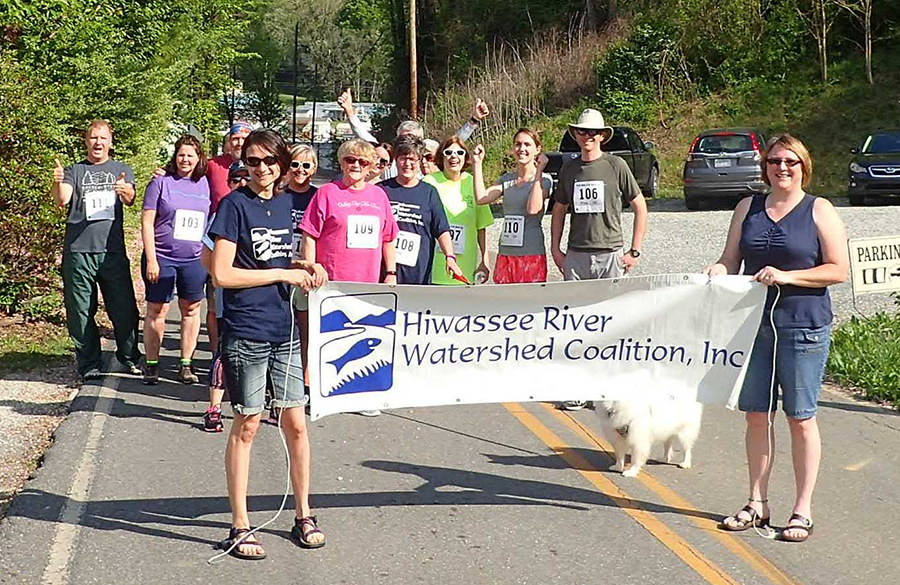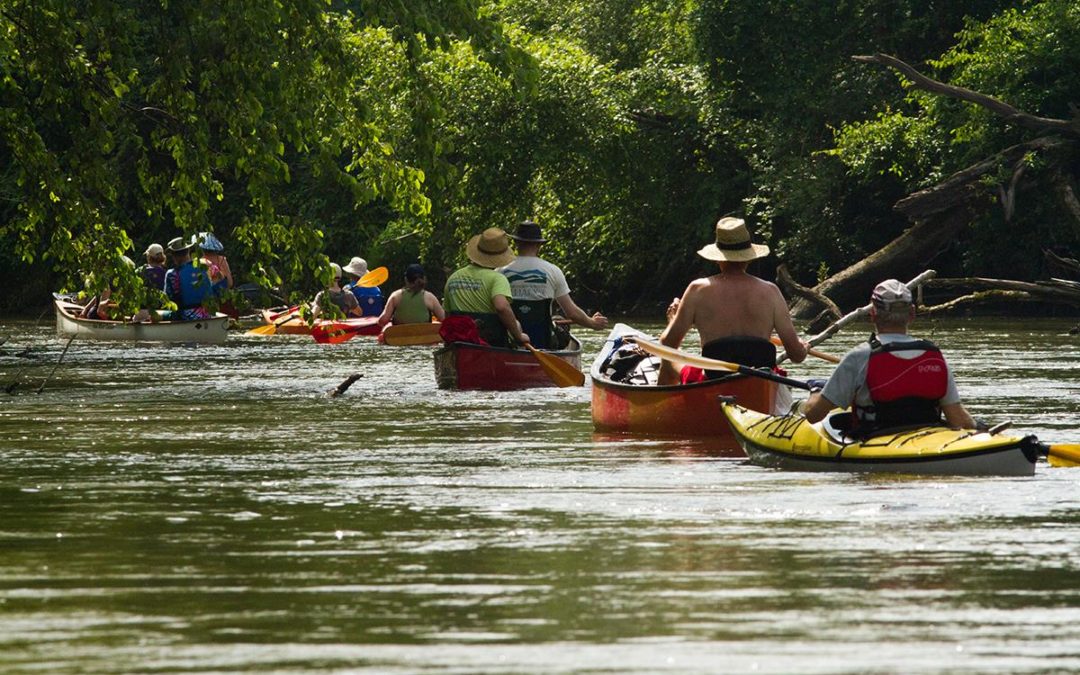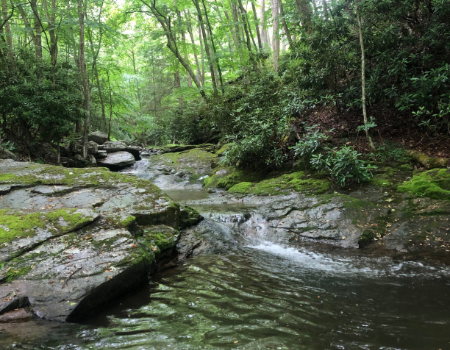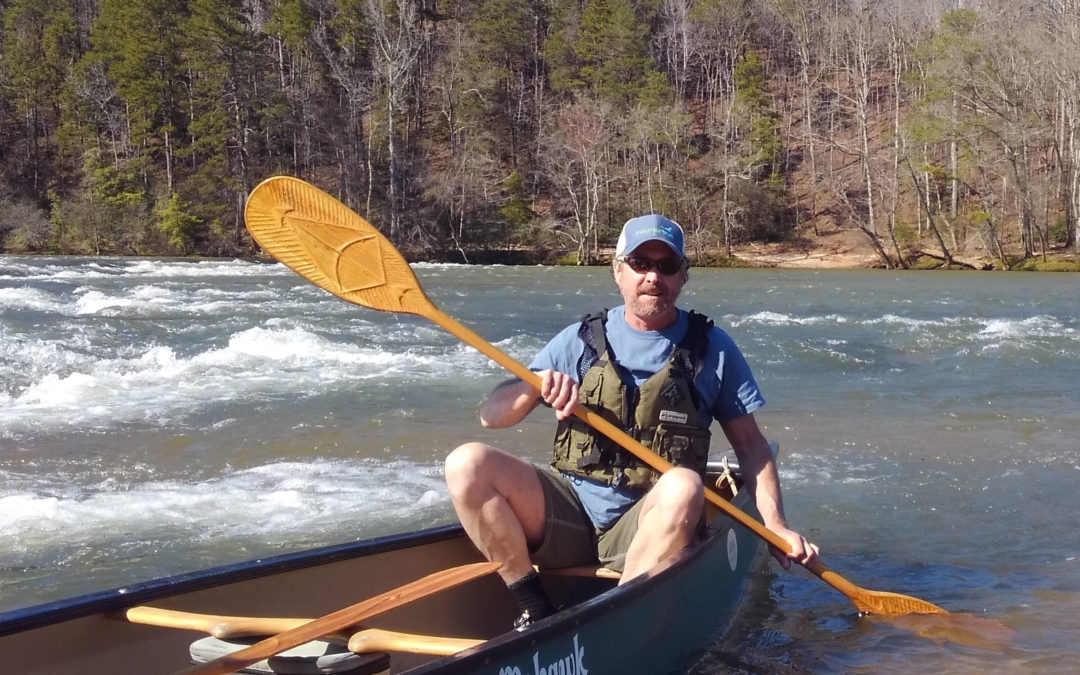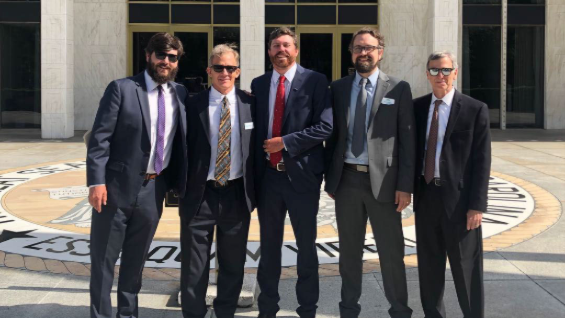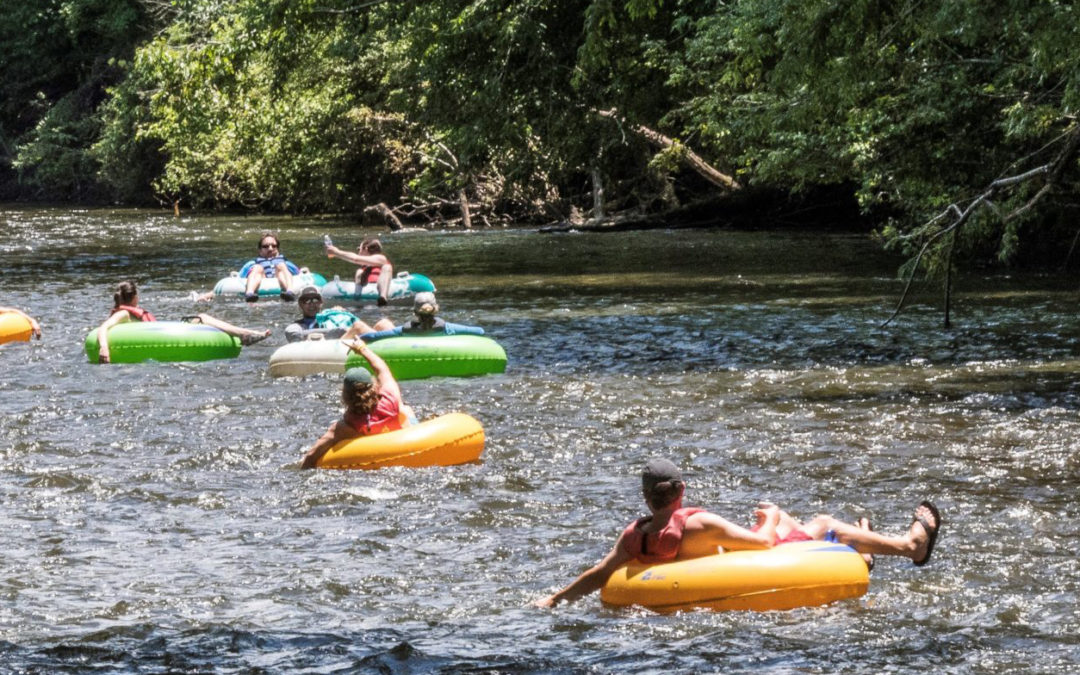Hiwassee River Watershed Coalition (HRWC) has merged with Western North Carolina conservation nonprofit MountainTrue as of July 1. Both organizations share a commitment to protecting our waters and forests. The merger is an important step toward building one organization that can effectively advance the interests of our mountain region through a combination of grassroots organizing, community-driven planning and strategic advocacy.
HRWC will maintain its Murphy, NC office, and its work in North Carolina and Georgia will continue under the name MountainTrue. However, HRWC Executive Director Callie Moore will take on the expanded role of MountainTrue’s Western Regional Director.
This merger is the result of focused discussions within and between both organizations’ boards and staffs since November. Prior to merging, each group reached out to their major funders, partner groups, and other stakeholders. The overwhelming conclusion from this exploration was positive, and both boards voted to support a formal merger in early June. Then, MountainTrue members were polled and voted to approve the merger in accordance to that organization’s bylaws.
Why Merge?
In Fall 2018, wanting to have an on-the-ground presence in the seven far western counties — Cherokee, Clay, Graham, Haywood, Jackson, Macon, and Swain — MountainTrue posted a job listing for a regional director. When Callie Moore, the executive director of HRWC, saw MountainTrue advertising the position, she wondered if it would be possible to gain more capacity for HRWC’s mission by collaborating in some more formal way with MountainTrue.
After consulting with the HRWC board executive committee, Callie met with MountainTrue co-directors, Julie Mayfield and Bob Wagner. That discussion led to considering a merger. “When Callie suggested working together in the western region we immediately put our hiring process on hold in order to start exploring a merger,” explains Bob Wagner.
Much of the two organizations’ work, especially around water quality and watershed protection, is complementary. HRWC has built up a local grassroots constituency of volunteers and supporters to improve water quality in the Hiwassee watershed in Georgia and North Carolina through water quality monitoring and education, controlling sediment pollution by restoring stream banks and stream side native habitats, and reducing bacterial pollution from septic systems and agricultural operations. MountainTrue has a nearly identical set of programs through their Broad, French Broad, Green and Watauga Riverkeeper programs.
“It makes a lot more sense to join forces with an organization that already has an impressive list of accomplishments and a strong base of support than to build all that from scratch.” explains MountainTrue’s other co-director, Julie Mayfield.
Both organizations approached their respective boards. Interest was high and formal discussions began to tackle the hard questions: What are the benefits of merging? And what are the challenges and concerns?
For the HRWC, it was clear that merging with MountainTrue would open new doors for growth. HRWC is financially stable but a small operation with an annual budget of only around $140,000. Many larger foundations and funders are hesitant to provide big grants if it means that they would make up a significant portion of an organization’s annual budget. With 37 years of experience and a $1.7 million budget, MountainTrue is a better fit for larger institutional funders.
Merging with MountainTrue would also allow HRWC to streamline their operations and direct more time towards projects and programs. MountainTrue has an experienced staff of 20 professionals who can provide HRWC volunteer/member engagement, communications, and management support — including back-of-the-house services such as bookkeeping and database management. MountainTrue has a communications and engagement team to help with event and program promotion, a development team for assistance with fundraising, and a public lands team ready to lend their expertise. “I am very excited about handing over many of my administrative responsibilities to someone else so that I can focus more on programs,” says Callie.
“Our organizations are stronger together,” explains Jason Chambers, chairperson of the HRWC board of directors. “The merger means that HRWC’s long-standing mission of sustaining good water quality will continue, but with better resources for our programs, services, and on-the-ground projects.”
“Both organizations recognize how important it is for HRWC’s supporters to feel their voices are heard and their concerns continue to be addressed,” Callie Moore notes. “There’s going to be a transition period where both organizations will maintain their websites, but the long-term goal is that HRWC’s volunteers and supporters will be just as proud to be members of MountainTrue.”
“The merger is an important step toward building one organization that can effectively advance the interests of the mountain region of Western North Carolina and North Georgia.” says Bob Wagner. “At MountainTrue, we know that the people of Western North Carolina and the people of Towns and Union counties have a shared love of our forests, rivers and natural environment that crosses county, state, and partisan lines. We want to harness those shared values for the benefit of all our communities. That’s what it means to be MountainTrue.”
 Callie served as Director of the Hiwassee River Watershed Coalition (HRWC) for 17 years until the organization merged with MountainTrue in 2019. She has a Master’s Degree in Water Resources from Indiana University and is a graduate of Western Carolina University’s (WCU) Environmental Health Program. Before HRWC, Callie worked with the North Carolina Department of Environment and Natural Resources as a river basin planner for the Division of Water Quality, during which time she worked extensively in several Western North Carolina river basins, including the Hiwassee, Little Tennessee, and Savannah. Other prior work experience includes water quality monitoring, sediment/erosion control compliance inspections, and environmental education for the Tennessee Department of Environment and Conservation and the Tennessee Valley Authority. Callie is a graduate of the Institute for Georgia Environmental Leadership, Leadership Chatuge, and she served on the Z. Smith Reynolds Foundation Community Leadership Council.
Callie served as Director of the Hiwassee River Watershed Coalition (HRWC) for 17 years until the organization merged with MountainTrue in 2019. She has a Master’s Degree in Water Resources from Indiana University and is a graduate of Western Carolina University’s (WCU) Environmental Health Program. Before HRWC, Callie worked with the North Carolina Department of Environment and Natural Resources as a river basin planner for the Division of Water Quality, during which time she worked extensively in several Western North Carolina river basins, including the Hiwassee, Little Tennessee, and Savannah. Other prior work experience includes water quality monitoring, sediment/erosion control compliance inspections, and environmental education for the Tennessee Department of Environment and Conservation and the Tennessee Valley Authority. Callie is a graduate of the Institute for Georgia Environmental Leadership, Leadership Chatuge, and she served on the Z. Smith Reynolds Foundation Community Leadership Council.
